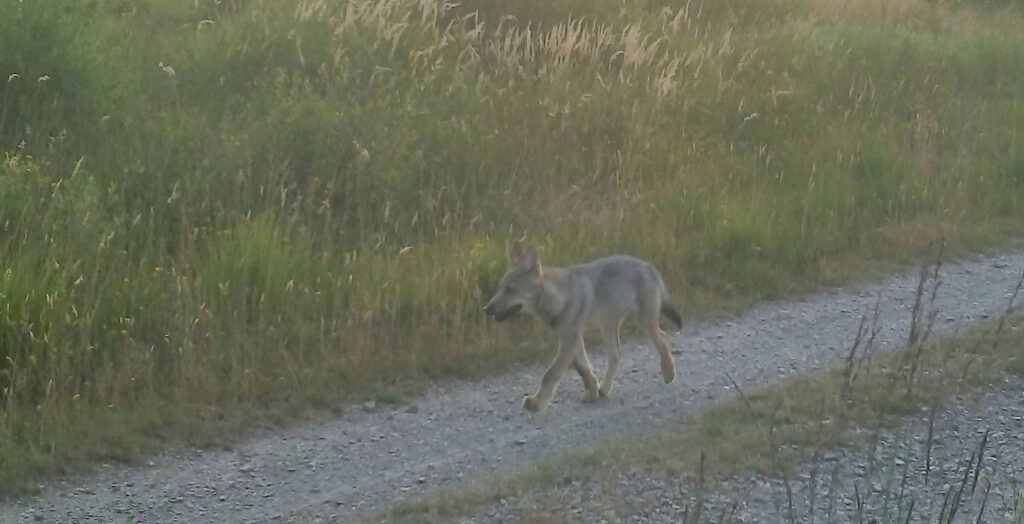The European Commission published on Wednesday a proposal to lower the protection level of wolves in the EU, claiming that their increasing numbers pose a danger, particularly to livestock.
Under the Bern Convention and EU’s 1992 ‘Habitats’ directive, wolves in most of Europe enjoy ‘strict protection’ status, with provision for exemptions. The Commission proposes now to change the international status of wolves from ‘strictly protected' to ‘protected' based on new data on increased populations and impacts.
As previously reported, large carnivores, such as bears, lynxes and wolves, should remain strictly protected within the EU, and have a right to co-exist with humans, according to a recent survey.
“The return of wolves is good news for biodiversity in Europe, but high concentrations of wolf packs in certain European regions have become a real threat, especially for livestock,” European Commission President Ursula von der Leyen commented in a statement.
Her views were echoed by Commissioner for Agriculture Janusz Wojciechowski. “From speaking with farmers and rural communities, I understand how the return of wolves has presented significant challenges in a number of areas, especially for pastoralism, in an already difficult socio-economic context."
The Commission claims that the return of wolves to areas in the EU from which they had been absent for a long time, is leading increasingly to conflicts with local farming and hunting communities. Over the past 20 years, the wolf population across the EU has risen significantly.
The Commission's proposal follows a data collection analysis last September and is based on an in-depth analysis. There are now over 20,000 wolves in 23 EU countries, and their packs are growing continually, occupying larger territories, according to the report. Wallonia currently counts three packs on its territory, while Flanders has one.
As regards public safety, the report admits that although wolves can attack humans, no fatal wolf attacks on people have been recorded in Europe in the last 40 years. To reduce even more the already small risk that wolves pose to human safety, specific protocols have been developed to address the problem of bold and/or food-conditioned wolves.
At odds with public opinion
In a section on the political context, the report acknowledged that the wolf continues to enjoy strong public support, as demonstrated by the Commission’s own data collection exercise. Over 70% of the respondents expressed their support for maintaining wolf protection status, compared to 29% in favour of reducing its protection status.
The report also referred to the recent opinion poll conducted by animal welfare NGO Eurogroup for Animals. According to that survey, “a significant 68% of those surveyed advocating to maintain the strict protection status of large carnivores”.
The estimate of 20,000 wolves in the EU stands in stark contrast to the 86 million sheep reared, the NGO commented. Between 2012 and 2016, the annual number of sheep compensated because of wolf depredation corresponded to 0.05 % of the over-wintering sheep stock while the risk of attacks on humans is very low, as wolves usually move away when encountering them.
Debates on the number of wolves present in different European countries have often pitted farmers against environmental protection groups.
The Commission's proposal was labelled as “outrageous” by the World Wildlife Fund (WWF). WWF representative Sabien Leemans accused the Commission president of “deliberately sacrificing decades of nature protection work for her own political interest.”
Von der Leyen has reportedly had a negative encounter with a wolf which could explain her attitude to wolves. In September 2022, a wolf entered her family’s property in northern Germany and killed her old pony, Dolly.
“With the publication of the proposal to change the protection status of wolves, the European Commission stands accused of backtracking on its prior commitments, with no scientific backing,” commented Léa Badoz, Wildlife Programme Officer, Eurogroup for Animals.
“The proposal reflects a strategic, opportunistic and political move which raises concerns about its motivations and alignment with genuine policy objectives,” she added.
It is now for the member states to decide on the proposal. Once adopted, the proposal will be submitted by the EU to the Standing Committee of the Bern Convention.
In the meantime, member states are urged by the Commission to take actions in the current legal framework and make use of EU funding to support investments in prevention measures to reduce threats to livestock.
Update: A previous version of the article has been updated.

